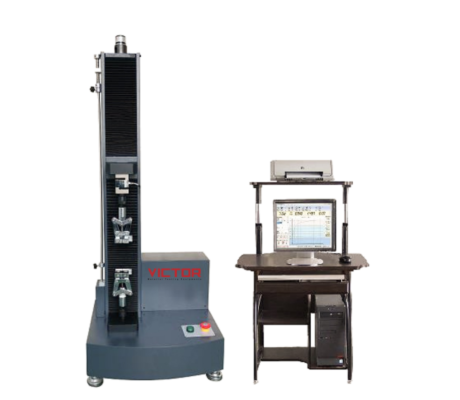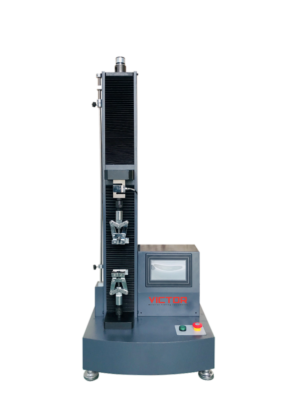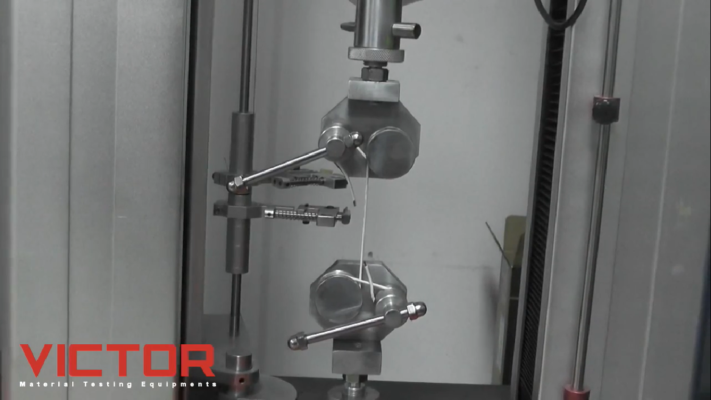ASTM is an international standards organization that is located in the United States of America. The purpose it was introduced to the industries is to publish technical standard agreements for various materials, product, systems and others. Among the ASTM standards that are often use in the industries is ASTM D2256 .
Description For ASTM D2256
ASTM D2256 Test Standard is an international test standard design to determine the breaking strength and the elongation of a thread. The purpose of this test is to measures the tensile properties of a thread by pulling it at a constant speed until it breaks.
Manufacturing industries such as thread and yarn often use this standard. Nowadays, ASTM standards are highly preferred by both corporate or government bodies. In Malaysia, most industries use the ASTM D2256 standard in their companies. The Malaysian government has also adopted this standard.
Basically, ASTM D2256 measures the breaking force and elongation of yarns and includes directions for the calculation of breaking tenacity, initial modulus, chord modulus, and breaking toughness. This test can be perform on using Universal Testing Machine (UTM).
The following are the properties of tensile commonly measure through ASTM D2256:
- It can be use to determine the tenacity, modulus, and strength of the material.
More : https://www.astm.org/standards/d2256
Specimens For ASTM D2256
This test is a little easier because the test is done by pulling the material at a constant rate until it breaks.
Specimens can be test with 3 different methods namely:
- Straight
- Knotted
- Looped

To prepare the specimen, wrap the thread/yarn sample at the top grip first then carefully wrap the sample into the bottom grip.
There are different styles of grips available for different brands of equipment, but the concept is basically the same.
Grips For ASTM D2256
1. Capstan Grip
Suitable for wire, thread, yarn etc. This grip is suitable for use as it can reduce clamp pressure and providing essential specimen alignment. The specimens are clamped in the appropriate grips and pull at a constant rate until failure occurs.
Extensometers For ASTM D2256
This test does not require an extensometer because the elongation can be obtained without using the extensometer.
Type of UTM machine
We recommend to use UTM machines with a capacity of 50N-1000N, it depends on the strength of the thread and yarn. We also recommend using smaller machines such as a single column type.
1. VEW 260 Series


VEW 260 Series table-top single column universal testing machine is a new material testing machine that combined with the electronic technology and mechanical transmission, it has accurate load speed, range of force measurement, Has high accuracy and sensitivity for the load, displacement measurement and control.
This series of machine using single-space structure, operational space at the bottom, it is mainly applied to test non-metallic and metallic material, which the load is less than 1kN, it has the parameters, such as stress, strain, the control mode of displacement, calculated max force, tensile strength, bending strength, compressive strength, elastic modulus, rate of elongation, yield strength and others.
Main function:
This machine can be applied to test lots of materials in tension, compression, tear, peel (can 90 degrees and 180 degrees) and other mechanical tests, such as rubber, tires, belt, shoes, plastic, film, acrylic, FRP, ABS, EVA, PU, aluminium-plastic pipe, composite materials, waterproof materials, fibers, textiles, wire and cable, paper, gold foil, ribbons, thread, spring, wood, medicine packaging materials, tapes etc.
More About VEW 260 Series Machine : https://www.victortestingmachine.com/products/universal-testing-machines/electromechanical/
Test Procedure
- Prepare the specimens as describe in the method.
- Load the specimen into the grip.
- Gauge length (length of thread between grips) is specified in the testing standard. The specimen length must be around 255mm.
- Use measuring equipment such as a caliper to measure the length of the specimen.
- Start the test with constant rate until its failure.

